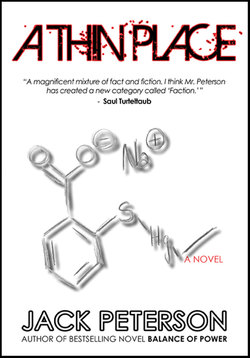Читать книгу A Thin Place - Jack Peterson - Страница 12
На сайте Литреса книга снята с продажи.
Chapter 6
ОглавлениеJune 11th, 1927
Minneapolis, Minnesota
A majestic convoy of warships escorted the USS Memphis along with its celebrated passenger on a ride up the Chesapeake and Potomac Rivers to Washington where President Coolidge was waiting. Charles Lindbergh was triumphantly returning home to America. Newscasters reported that tears were running down Lindbergh’s cheeks.
As Lindbergh disembarked for his ride to the White House, eleven hundred miles to the west, it was already 7:40 A.M. in Minnesota. After catching bits and pieces of the radio broadcast of Lindbergh’s return celebration at a local diner, Jeremiah Trent headed to his office. Gusts of river-chilled wind from the east bank of the Mississippi river funneled up the stairs, slamming against Trent’s back as he scurried up the stairs to his office in the University of Minnesota’s Science Center. He was on a mission. For the moment, last night’s phone call from Richard Gurzi made everything else in his life insignificant.
Trent spent the entire day in his office preparing for any possible scenario Gurzi might throw at him. When he finally proclaimed himself ready, he leaned back in his chair and once again reviewed the precarious threshold he was about to cross and the opportunity it presented. His advancement in the field of chemistry had come quickly. Fellowship programs had financially helped him accelerate his studies, but grants came with invisible strings that he abhorred. Money from major drug companies came with an unspoken understanding there was an unspoken debt to be paid. Any scientific discoveries or breakthroughs that came on the drug company’s dollar, the sponsors expected to be given first right of refusal for any new commercial applications being released to competitors. It was simple. If the discovery or advancement had a monetary value, both the drug companies and the university would benefit monetarily. The scientists would get academic recognition for their resumes and, possibly, a salary increase, but little else.
Later, as the sun began to set, Trent was once again outside waving down another taxi for the twenty-minute ride from his office across the Mississippi to the St. Paul Hotel. While he was excited that Gurzi was interested in brokering his interest, he tempered his enthusiasm because he felt his development of a vaccine preservative was not particularly brilliant. He always believed that the simplest of inventions or accomplishments were usually born only because somebody thought of them first, not because what they invented or did was necessarily difficult or complicated. Somebody found a way to make a horse useful by inventing a bridle, followed by a harness for a plough, then a cart for the horse to pull. One just had to find a need or a goal and then create. If Lindbergh hadn’t flown across the Atlantic, someone else would have. He used the same analogy about his formula. If he hadn’t created a bacteria-free vaccine storage solution, one surely would have followed eventually. First was always rewarded or recognized. Second place was not. It was that simple.
For the first time in his life, Trent knew he had gotten there first. It was his formula, developed on his own time, and all related expenses personally paid. Medical school started in August. For now, it was Gurzi who held the key to his future. It was time to make the deal.
